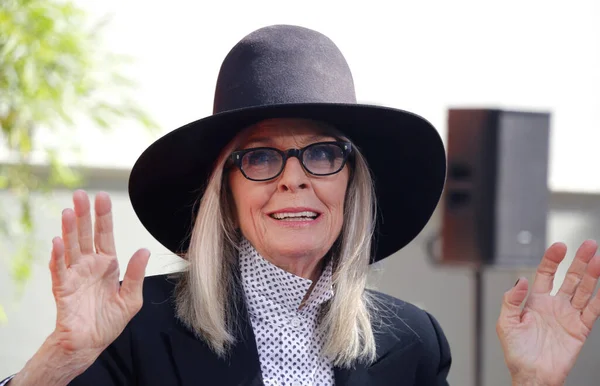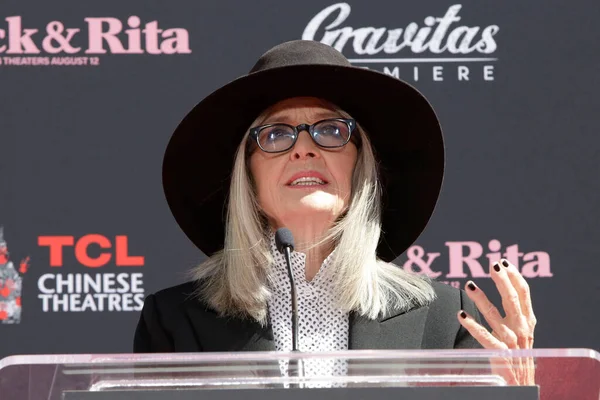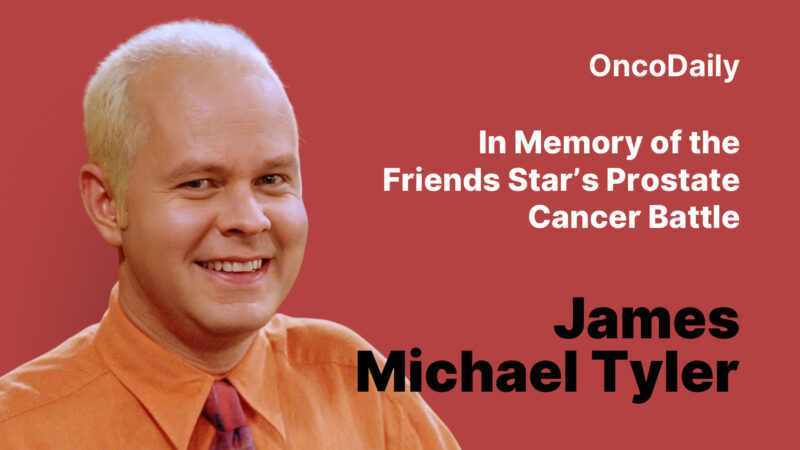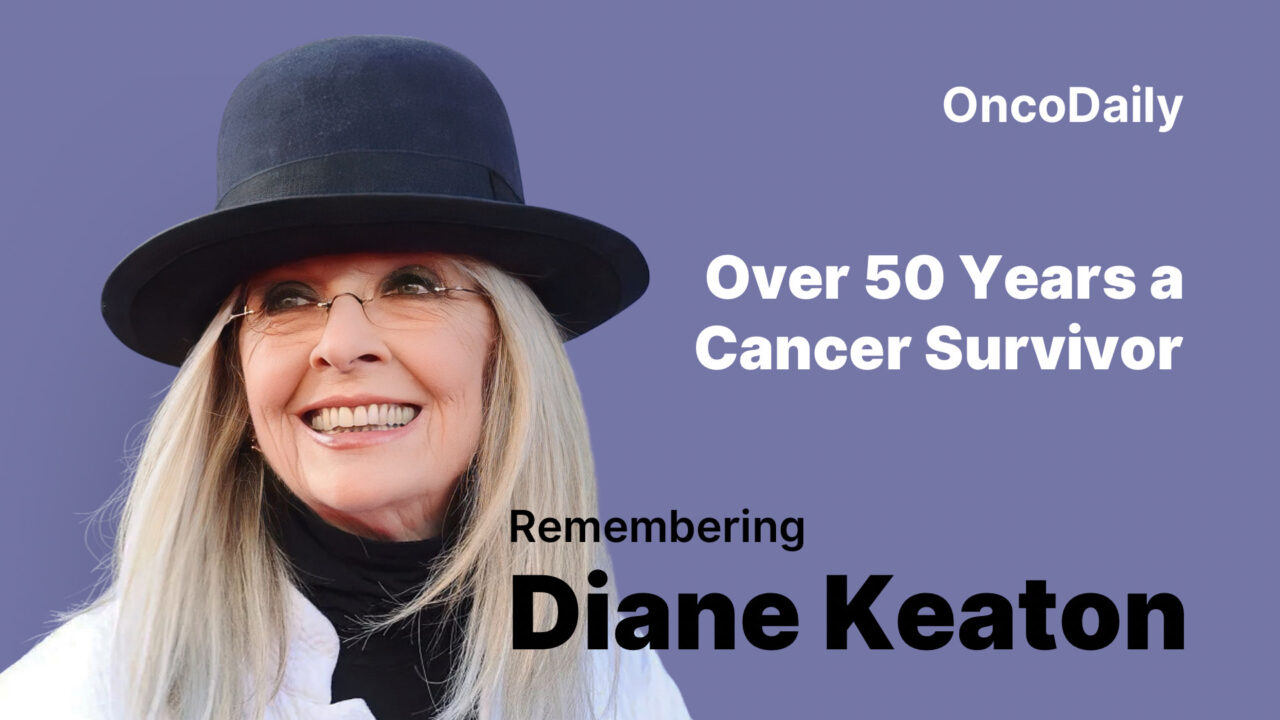Oscar-winning actress Diane Keaton, celebrated for her distinctive comedic timing and iconic roles, passed away on October 11, 2025, at the age of 79 in California. Keaton rose to fame in the 1970s, most notably for her role in Woody Allen’s “Annie Hall,” which earned her an Academy Award for Best Actress. Known for her quirky charm and unique fashion sense, Keaton captivated audiences with performances in classics such as “The Godfather” series, “The First Wives Club,” and “Something’s Gotta Give.”
Beyond her illustrious film career, she was admired for her candidness about personal health struggles, including her battles with skin cancer and bulimia during her younger years. Diane Keaton’s enduring impact on Hollywood and her openness about health challenges have left a lasting legacy that continues to inspire many.

Photo: Depositphotos
Early Life and Career Highlights
Diane Keaton was first diagnosed with basal cell carcinoma, a form of skin cancer, at the young age of 21. She openly spoke about the strong family history of skin cancer, mentioning that her aunt had suffered so severely that she had to have her nose removed, and that both her father and brother had battled basal cell carcinoma as well. Keaton admitted that in her early years she neglected proper sun protection, only beginning to seriously care for her skin in her 40s. Decades after her initial diagnosis, she faced another health challenge with squamous cell carcinoma, which required two surgical procedures.
Despite these serious health issues, Keaton maintained her career and used her public platform to raise awareness about the importance of sun protection and early detection of skin cancer. She also battled bulimia, linking it to pressures she faced in her early career. Keaton’s candidness about these health struggles endeared her even more to fans and highlighted her resilience.
Quotes from her 2015 interview with the Los Angeles Times underline her personal insights:
“It’s a family history. I remember my Auntie Martha had skin cancer so bad they removed her nose. My father had basal cell cancer, and my brother experienced it as well. This skin cancer can be tricky, which is why it’s essential to apply sunblock.”
Her signature hats were partly worn as a protective measure against sun damage, reflecting her advocacy for skin health. Keaton’s open discussions about her cancer battles and overall wellness have contributed significantly to public awareness about the risks of skin cancer and the importance of proactive health care.
A Different Kind of Healing: Diane Keaton on Overcoming Bulimia
Diane Keaton was open about her struggles with skin cancer, having been diagnosed with basal cell carcinoma at 21 and later battling squamous cell carcinoma, which required surgeries. This personal experience fueled her commitment to raising awareness about skin cancer prevention, especially the importance of sun protection. Keaton was known for wearing hats not just as a fashion statement but as a protective measure against sun damage, an advocacy rooted in her family history of skin cancer.
“In my 20s, I didn’t pay much attention. I didn’t do any research and didn’t care, which was foolish. It has haunted me throughout my adult life, even recently.”
In addition to cancer awareness, Keaton spoke candidly about her battles with bulimia, which she linked to pressures in early acting roles. Her openness helped reduce stigma around eating disorders and mental health, encouraging others to seek help.
Though not heavily involved in public campaigns, Keaton supported charitable health initiatives quietly, emphasizing personal wellness and mental health care. She promoted the message of early detection, the importance of preventive care, and living authentically through candid interviews and her memoir.
Keaton’s health advocacy was mainly through her public openness—encouraging sun safety, awareness, and self-care. Her journey inspired many, providing a relatable role model of resilience, authenticity, and commitment to health despite personal challenges.
The Impact and Legacy of Diane Keaton
Diane Keaton’s candidness about her battles with skin cancer and bulimia has left a profound impact on fans and the public alike. By openly sharing her personal health struggles, she broke the silence around often stigmatized conditions, inspiring many to prioritize early detection and self-care. Her willingness to discuss the dangers of sun exposure and emphasize skin protection raised awareness about cancer prevention, especially among younger generations.
As a survivor, Keaton became a symbol of resilience and strength. Her public advocacy, though subtle, helped spotlight the importance of regular skin checks and preventive health measures, encouraging early intervention that can save lives. For many young cancer patients, her story offers hope and reassurance that recovery and a fulfilling life are possible. Keaton’s legacy extends beyond cinema she is remembered as an advocate for health awareness who used her platform to empower others.
Diane Keaton’s courage in openly sharing her health struggles, including her battles with skin cancer and bulimia, has made a lasting contribution to cancer awareness. Her willingness to discuss these challenges helped destigmatize these conditions and inspired many to take preventive health measures seriously—particularly the importance of sun protection and early cancer detection. Keaton’s signature hats and protective style became a symbol of her advocacy for skin health, reflecting deeper messages about self-care and resilience.

Photo: Depositphotos
Readers are encouraged to learn more about cancer prevention, support ongoing research, and adopt healthy lifestyle practices such as regular skin checks, mindful sun exposure, and mental wellness awareness. Diane Keaton’s journey reminds us that bravery in the face of adversity can fuel positive change and save lives.
Her legacy is one of strength, authenticity, and hope—a beacon for those facing health battles and a powerful advocate for cancer awareness whose impact will endure beyond her time.
How Prevent Skin Cancer?
Preventing skin cancer involves a comprehensive approach to reduce exposure to ultraviolet (UV) radiation, including seeking shade during peak hours, wearing protective clothing like long sleeves and hats, applying broad-spectrum sunscreen with SPF 30 or higher daily, avoiding tanning beds, and conducting regular skin checks for early detection.
Protect Your Skin from UV Radiation
To protect your skin from harmful UV radiation, it’s important to take a comprehensive approach. Avoid direct sunlight between 10 a.m. and 4 p.m., when UV rays are at their strongest, by seeking shade whenever possible. Wearing protective clothing—such as long-sleeved shirts, pants, wide-brimmed hats, and UV-blocking sunglasses—provides an effective physical barrier against sun exposure. Additionally, apply a broad-spectrum sunscreen with an SPF of 30 or higher daily, even on cloudy days. Sunscreen should be reapplied every two hours, or immediately after swimming or excessive sweating, to maintain its protective effect.
Equally important is avoiding artificial sources of UV radiation. Tanning beds and sunlamps emit UV rays that are just as damaging as natural sunlight and significantly increase the risk of developing skin cancer. For safe skin, it’s best to avoid these devices altogether and opt for safer alternatives if tanning is desired.
How to Use Sunscreen for Maximum Protection?
Step 1: Apply Sunscreen Correctly
To ensure full coverage, apply about 1 ounce (30 ml) of sunscreen to cover your entire body, which is roughly the amount that fits in a shot glass. For the face, use about a teaspoon. It’s important to apply sunscreen 15-30 minutes before going outside to allow it to absorb fully. Make sure to rub the sunscreen thoroughly into all exposed skin areas, including often-missed spots like the ears, back of the neck, tops of the feet, and hands.
Step 2: Reapply Sunscreen
Reapply sunscreen every two hours or immediately after swimming or sweating to maintain effective protection. Consistency is key, so make sunscreen application a regular part of your daily routine, even on cloudy days when UV rays can still penetrate the clouds.
Step 3: Additional Tips
Apply sunscreen as the last step in your skincare routine, after moisturizer, to ensure it’s effective. For hard-to-reach areas like your back, use a spray sunscreen or ask someone to help apply it. Don’t forget to protect your lips with a lip balm that contains SPF.

Written by Aharon Tsaturyan, MD, Lead of OncoDaily Volunteers, Editor at OncoDaily Intelligence Unit.
FAQ
What type of cancer did Diane Keaton have?
Diane Keaton was diagnosed with basal cell carcinoma (a type of skin cancer) at age 21. Later in life, she also battled squamous cell carcinoma, requiring surgery.
How did Diane Keaton discover her cancer?
She underwent multiple biopsies before a diagnosis was confirmed. She shared that skin cancer ran in her family and emphasized the importance of dermatologist visits and sun protection.
What treatments did Diane Keaton undergo for her cancer?
Keaton had surgical removal of cancerous skin tissue and adopted sun protection measures later in life.
Did Diane Keaton talk about her cancer openly?
Yes, she was candid about her health battles, discussing her experiences in interviews to raise awareness of skin cancer risks and prevention.
How did Diane Keaton’s cancer affect her lifestyle?
Her experience led her to promote sun safety, including wearing hats and sunscreen, and advocating for regular skin checks.
Did Diane Keaton have any other health struggles?
Yes, she also openly discussed her struggle with bulimia earlier in life, which she linked to the pressures of her acting career.
Did Diane Keaton participate in cancer awareness or health advocacy?
While not widely publicized, she used her platform to emphasize skin cancer prevention and early detection through interviews and public appearances.
What legacy did Diane Keaton leave concerning cancer awareness?
She inspired many by sharing her journey publicly, encouraging early detection, preventive care, and destigmatizing health conditions.
How old was Diane Keaton when she passed away?
Diane Keaton died at age 79 on October 11, 2025.
What can we learn from Diane Keaton’s health journey?
Her story highlights the importance of early skin cancer detection, family history awareness, and lifestyle changes to reduce cancer risk.


